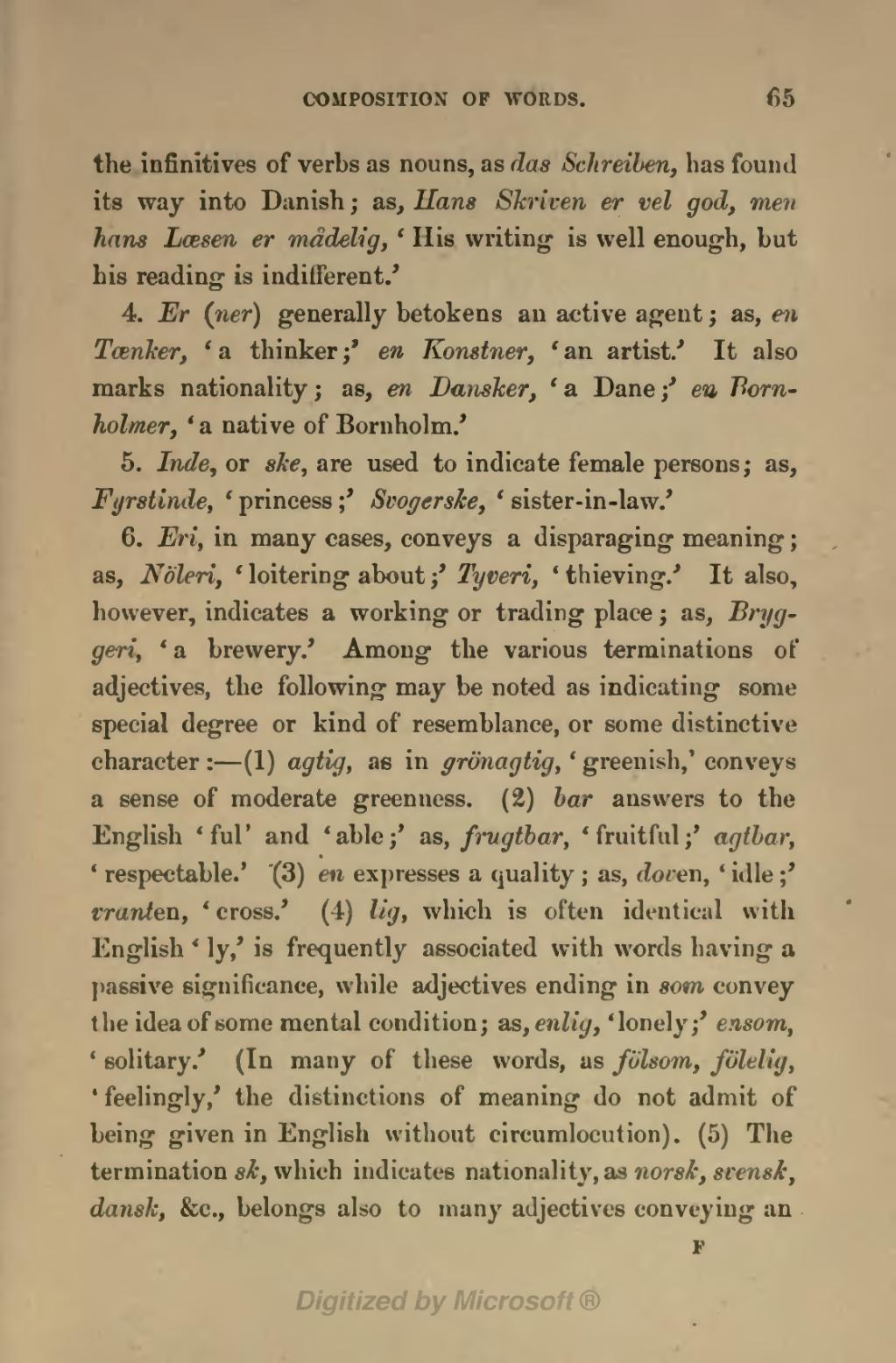the infinitives of verbs as nouns, as das Schreiben, has found its way into Danish; as, Hans Skriven er vel god, men hans Læsen er mådelig, 'His writing is well enough, but his reading is indifferent.'
4. Er (ner) generally betokens an active agent; as, en Tænker, 'a thinker;' en Konstner, 'an artist.' It also marks nationality; as, en Dansker, 'a Dane;' en Bornholmer, 'a native of Bornholm.'
5. Inde, or ske, are used to indicate female persons; as, Fyrstinde, 'princess;' Svogerske, 'sister-in-law'.
6. Eri, in many cases, conveys a disparaging meaning; as, Nöleri, 'loitering about;' Tyveri, 'thieving.' It also, however, indicates a working or trading place; as, Bryggeri, 'a brewery'. Among the various terminations of adjectives, the following may be noted as indicating some special degree or kind of resemblance, or some distinctive character:—(1) agtig, as in grönagtig, 'greenish,' conveys a sense of moderate greenness. (2) bar answers to the English 'ful' and 'able;' as, frugtbar, 'fruitful;' agtbar, 'respectable.' (3) en expresses a quality; as, doven, 'idle;' vranten 'cross.' (4) lig, which is often identical with English 'ly,' is frequently associated with words having a passive significance, while adjectives ending in som convey the idea of some mental condition; as, enlig, 'lonely;' ensom, 'solitary.' (In many of these words, as fölsom, fölelig, 'feelingly,' the distinctions of meaning do not admit of being given in English without circumlocution). (5) The termination sk, which indicates nationality, as norsk, svensk, dansk, &c., belongs also to many adjectives conveying an
